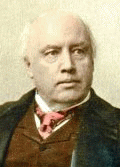Over the course of the last several decades, worksite wellness programs have been on offer across America and elsewhere. All are designed as part of efforts to reduce organizational insurance costs, promote worker morale, reduce absenteeism and high risk behaviors, boast productivity, increase health and so on. All well and good; these kinds of incremental programs will surely continue for the indefinite future.
Among the major issues that corporate leaders, the research community and others address are:
* What kind of incentives will boost participation and desired outcomes?
* Which segments of the population get the most (and least) from wellness education?
* And, how can such investments be accurately evaluated?
These and other matters are significant and should be explored.
A LARGER VISION, A BROADER GOAL
Why stop there? Saving money, boosting health, keeping track and all the rest are fine. However, there are opportunities inherent in the nature of REAL wellness that are not likely to arise in standard medically-focused, risk- reduction offerings. The reason? Most if not all are even wellness offerings. The programming is, for the most part, warmed-over health education, nice but nowhere near the life-changing, quality of life-boosting possibilities that could be promoted.
To change lives and world views, perhaps we should encourage people to consider how they might improve themselves. Assuming, of course, that room for improvement is perceived as possible, given one's sense of his or her existing state of near perfection. (For anyone suffering from this delusion, consider this from Michel de Montaigne, an essayist who lived from 1533-1592: There is no man so good, who, were he to submit all his thoughts and actions to the laws, would not deserve hanging ten times in his life.)
IMPROVED HUMANS
Let's look, then, at a hypothetically improved man. What views, perspectives, values and or passions would improved man embrace or favor?
Here are a few possibilities, based upon qualities described by Robert Green Ingersoll in a speech entitled, Improved Man, in 1890.
Robert Green Ingersoll (1833-1899) by Donald B. Ardell (public domain)
How closely do these ideas reflect your own thinking? To what extent do you aligned with such standards?
* The improved man or woman will favor universal liberty. He or she will be opposed not just to kings and nobles but all privileged classes.
* He will give others the rights he claims for himself - a rule as practical as it is golden.
(Note: You can view every article as one long page if you sign up as an Advocate Member, or higher).






